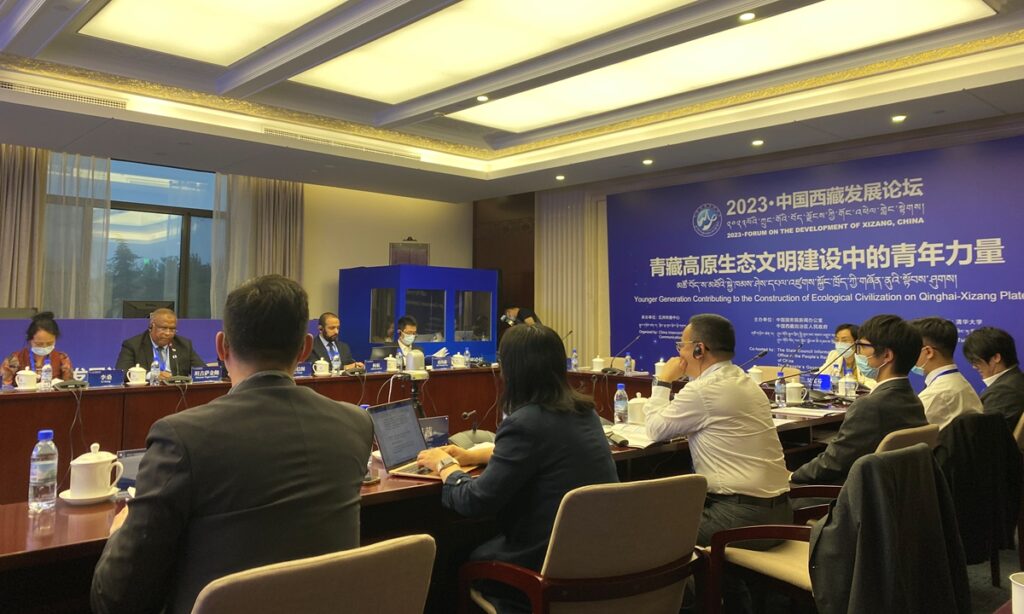The younger generation is actively engaged in the conservation of the ecology and environment in Southwest China’s Xizang Autonomous Region, and many more Gen Z people with diverse skills and abilities are expected to contribute and take on significant roles in this endeavor.
Environmental authorities, experts and young scholars shared their opinions on the topic of “Younger generation contributing to the construction of ecological civilization on Qinghai-Xizang plateau” at a side event at the Forum on the Development of Xizang held on Tuesday night in Beijing.
“The young generation should be guided well in terms of preserving ecology, because the ecology gives back to them,” Manasa Tagicakibau, Ambassador of Fiji to China, told the Global Times at the event.
The ambassador noted that both the South Pacific and Xizang are vulnerable to climate change. “We have frequent storms, tropical cyclones that are happening more frequently and with greater intensity now due to climate change, while glaciers are melting in Xizang, causing the sea level to further rise,” he said.
The responsibility and practice of “Generation Z” in promoting environmental protection and sustainable development in the Qinghai-Xizang Plateau are crucial to the future of the region and the planet as a whole, Jennifer Holstein, principal of the International Education School of Pingo Academy, said.
“Generation Z can make a significant impact on the environment and contribute to a more sustainable future. It is up to this generation to take action now to ensure that the Qinghai-Xizang Plateau remains a vibrant and healthy ecosystem for generations to come,” she said.
Xizang has seen achievements in ecological protection, and it is expected to benefit more from the process of green development.
“Xizang is blessed with abundant natural resources. It holds a unique advantage in terms of hydroelectric and solar energy potential, with the highest development capacity and carbon sequestration capacity in the country,” Yan Jinhai, Deputy Secretary of the Communist Party of China Xizang Autonomous Regional Committee, Chairman of the People’s Government of Xizang Autonomous Region, said in his plenary speech at the forum.
In the future, there is a strong possibility of establishing a clean energy base with a total capacity of more than 300 million kilowatts. This would provide trillions of kilowatt-hours of clean electricity to the nation annually, contributing to a reduction of approximately 1 billion tons of global carbon dioxide emissions.
Xizang is home to the most developed mountain glaciers, abundant rivers, and lakes. It is one of the world’s three major pristine regions, with large parts of the area still in its original state and numerous ecological secrets yet to be unveiled, Li Sang, Vice Party Secretary and Director General of the Ecological Environment Department of Xizang Autonomous Region, said at a sub forum on Tuesday.
Xizang will promote the establishment of the Three Rivers Source National Park (Tangbei region) and facilitate the development of national parks such as Qiangtang and Mount Qomolangma. Efforts will be made to enhance the protection and management of biological genetic resources while strictly controlling the invasion of alien species, according to Li.
(Global Times)




